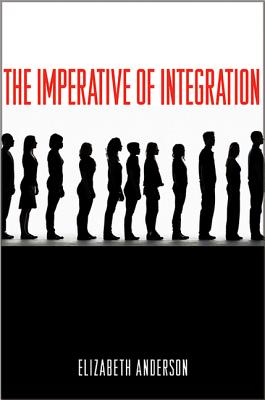

 Princeton University Press
Princeton University Press
The Imperative of Integration


Key Metrics
- Elizabeth Anderson
- Princeton University Press
- Paperback
- 9780691158112
- 9.1 X 6.1 X 0.7 inches
- 0.75 pounds
- Philosophy > Political
- English
 Secure Transaction
Secure TransactionBook Description
More than forty years have passed since Congress, in response to the Civil Rights Movement, enacted sweeping antidiscrimination laws in the Civil Rights Act of 1964, the Voting Rights Act of 1965, and the Fair Housing Act of 1968. As a signal achievement of that legacy, in 2008, Americans elected their first African American president. Some would argue that we have finally arrived at a postracial America, but The Imperative of Integration indicates otherwise. Elizabeth Anderson demonstrates that, despite progress toward racial equality, African Americans remain disadvantaged on virtually all measures of well-being. Segregation remains a key cause of these problems, and Anderson skillfully shows why racial integration is needed to address these issues. Weaving together extensive social science findings--in economics, sociology, and psychology--with political theory, this book provides a compelling argument for reviving the ideal of racial integration to overcome injustice and inequality, and to build a better democracy.
Considering the effects of segregation and integration across multiple social arenas, Anderson exposes the deficiencies of racial views on both the right and the left. She reveals the limitations of conservative explanations for black disadvantage in terms of cultural pathology within the black community and explains why color blindness is morally misguided. Multicultural celebrations of group differences are also not enough to solve our racial problems. Anderson provides a distinctive rationale for affirmative action as a tool for promoting integration, and explores how integration can be practiced beyond affirmative action.
Offering an expansive model for practicing political philosophy in close collaboration with the social sciences, this book is a trenchant examination of how racial integration can lead to a more robust and responsive democracy.
Author Bio
Professor Elizabeth Anderson specializes in moral, social and political philosophy, feminist theory, social epistemology, and the philosophy of economics and the social sciences. She is particularly interested in exploring the interactions of social science with moral and political theory, how we learn to improve our value judgments, the epistemic functions of emotions and democratic deliberation, and issues of race, gender, and equality.
She is the author of Value in Ethics and Economics, The Imperative of Integration, and, most recently, Private Government: How Employers Rule Our Lives (And Why We Don't Talk About It), as well as articles on value theory, the ethical limitations of markets, facts and values in social scientific research, feminist and social epistemology, racial integration and affirmative action, rational choice and social norms, democratic theory, egalitarianism, and the history of ethics (focusing on Kant, Mill, and Dewey). Professor Anderson is currently working on a history of egalitarianism.
Professor Anderson is a MacArthur Fellow, a Fellow of the American Academy of Arts and Sciences, and a Fellow of the British Academy. She designed and was the first Director of the Program in Philosophy, Politics, and Economics at UM.
- Education
- 1987, Ph.D., Philosophy, Harvard University
1984, A.M., Philosophy, Harvard University
1981, B.A., Philosophy with minor in Economics, High Honors, Swarthmore College
Source: University of Michigan
Videos






Community reviews
Write a ReviewNo Community reviews